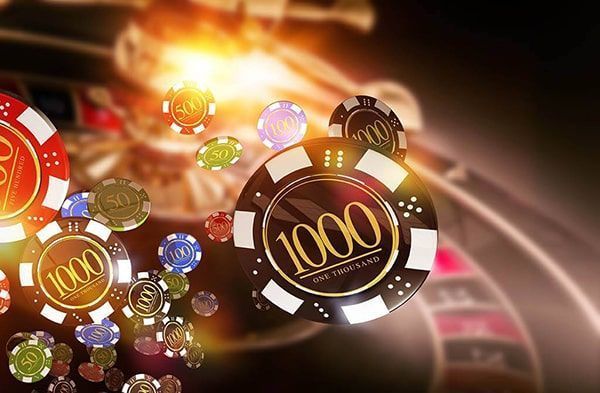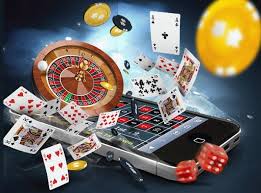The Evolution of Gambling From 1

The Evolution of Gambling From
Gambling has been a part of human culture for thousands of years, reflecting societal norms and the evolution of human interaction. From the primitive games of chance played in the ancient world to the sophisticated online casinos of today, The Evolution of Gambling From Land to Online https://takabet-bd.com/ gambling has always played a significant role in entertainment and economy. This article will take you through the history of gambling, exploring its developments and transformations.
Ancient Beginnings
The origins of gambling can be traced back to ancient civilizations. Archaeological evidence suggests that people in Mesopotamia were playing games of chance as early as 3000 BC. These early games involved the use of dice made from various materials like bone and wood. Similarly, ancient Chinese texts dated back to around 2300 BC reference games that resemble modern-day gambling.
As cultures merged and flourished, gambling took on different forms and rules. The ancient Greeks and Romans had their own versions of betting games. The Greeks engaged in wagering on athletic competitions, while the Romans enjoyed far more elaborate gambling, with games that included betting on gladiatorial fights and chariot races.
Middle Ages and the Reformation
The Middle Ages saw gambling continue to be popular, albeit with fluctuations in acceptance. In parts of Europe, the Church played a significant role in promoting or prohibiting gambling activities. Despite this, games such as dice and card games flourished during this period. It was during this time that gambling establishments began to emerge, leading to the first gambling houses, known as ‘gaming houses.’
With the Reformation came changes in perspective. Gambling became associated with sin and moral decay, which led to stricter regulations by the Church and the state. Nonetheless, clandestine gambling continued, leading to a dichotomy between public morality and private behavior.
The Rise of Lotteries and Organized Betting
The introduction of state-run lotteries in the 15th century marked a significant shift in gambling. Governments began to recognize the financial potential of organized betting. The first recorded lottery occurred in Flanders, and it quickly spread throughout Europe. These lotteries were primarily used to fund public works and infrastructure.
By the 17th century, betting on horse racing had become extremely popular in England and the colonies. Betting parlor culture began to thrive, offering people a place to wager and socialize. The establishment of the Jockey Club in 1750 formalized horse racing as a legitimate betting activity.
19th Century: Regulation and Modernization

The 19th century brought about significant advancements in the regulation of gambling. Many countries recognized the economic benefits of legalized gambling and sought to control it. The Gambling Act of 1845 in the UK is a prime example, paving the way for lawful betting shops and gaming houses.
This era also saw the rise of casinos, becoming key social venues. The most famous was the Casino di Venezia, founded in 1638, officially becoming a recognized casino in 1797. The allure of the casino expanded, reaching out to gamblers around the world.
20th Century: The Boom of Casinos and Online Gambling
The 20th century marked the explosion of legal gambling establishments with Las Vegas emerging as the capital of gambling in the mid-20th century. The legalization of casinos in Nevada in 1931 set a precedent that many states would soon follow. Las Vegas became synonymous with gambling and entertainment, attracting tourists from around the globe.
The introduction of video slots in casinos and later, online gambling, began to transform the gambling landscape dramatically. The Internet revolution in the late 20th century brought about the first online gambling sites in the mid-1990s, allowing players to bet from the comfort of their homes.
The Digital Age: Mobile and Virtual Gambling
As technology advanced, so did gambling’s accessibility. Mobile technology allowed for gambling applications, transforming how players interacted with betting platforms. Today, online casinos offer a wide array of games including poker, blackjack, and sports betting, reaching a global audience.
Virtual gambling has taken it a step further with innovations like virtual reality casinos, creating immersive experiences that mimic the physical sensations of being in a casino. This evolution is shaping the future of gambling, with the integration of blockchain technology ensuring security and transparency in transactions.
The Social and Economic Impact of Gambling
The evolution of gambling has had profound social and economic impacts. Governments worldwide reap significant tax revenue from gambling activities, which can be allocated to public services. However, concerns around gambling addiction and regulation persist. Various forms of responsible gambling strategies have been implemented, promoting safer gambling environments.
Moreover, gambling has influenced popular culture, reflected in literature, films, and social discussions about risk, chance, and luck. The duality of gambling as both entertainment and potential vice creates a complex narrative around its role in modern society.
Conclusion: The Future of Gambling
As we look to the future, the evolution of gambling is poised to continue, driven by technology and changing cultural attitudes. The advent of crypto-currencies and further advancements in mobile technology may redefine how gambling functions in the coming years, making it even more accessible and diversified.
From ancient dice to virtual casinos, the journey of gambling reflects humanity’s ongoing relationship with risk, chance, and the thrill of wagering. With continued evolution, it remains an intriguing aspect of human interaction and entertainment, likely to flourish amid future innovations.

